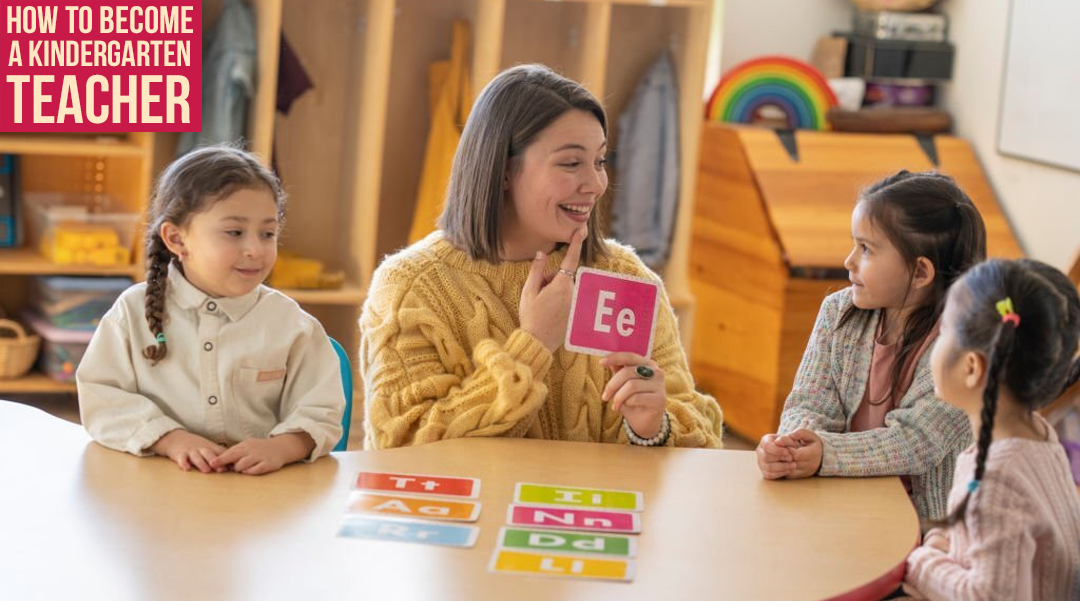Your Cart is Empty
- Gift for Family ⭐
- Handbag 🔥
-
Pet
-
Memorial
-
Products
-
Home & Garden
-
Accessories
- Happy Customers ❤️
Mastering the Path: How to Become an Elementary School Teacher
September 08, 2023 6 min read

Are you passionate about molding young minds and making a lasting impact on future generations? Do you have a calling to ignite the flames of curiosity in children's hearts? If so, becoming an elementary school teacher might be your destiny. In this guide, we'll walk you through the intricacies of how to become an elementary school teacher, from the necessary qualifications to practical insights that will set you on the right path.
Contents
1. Getting Started: The Basics

-
Earn Your Bachelor's Degree
To become an elementary school teacher, your journey begins with obtaining a Bachelor's degree. Choose a major related to education, such as Elementary Education, Early Childhood Education, or Child Psychology. These majors provide you with a strong foundation in educational theory and practice.
Your coursework should extend beyond education-related subjects. Embrace subjects like mathematics, English, and science. Why? Because these subjects will become your toolkit for effective teaching. Remember, you'll be the guiding light for young minds exploring these subjects.
-
Student Teaching Experience
The old adage "practice makes perfect" holds true in teaching. To gain practical experience and get a real taste of the classroom environment, consider participating in a student teaching program. This hands-on experience will give you insights into classroom dynamics, behavior management, and lesson planning.
It's during this phase that you'll learn the invaluable art of adapting to the unique needs of students. You'll see firsthand how to foster a positive and engaging learning atmosphere.
-
Certification Requirements
Becoming a certified teacher is essential, but the process varies from place to place. Research and understand the certification requirements in your state or country. Different regions may have specific guidelines, so it's vital to be well-informed.
Typically, certification entails not only having the right degree but also passing specific exams and fulfilling other criteria like background checks or even completing additional coursework.
-
Pass Required Exams
Once you've met your education and student teaching requirements, it's time to prepare for and pass the necessary teacher certification exams. These exams often encompass assessments of your pedagogical skills and your mastery of the subject matter.
Think of these exams as your teaching license. They're the gatekeepers to your future career in education. So, study diligently and be well-prepared to demonstrate your competency in teaching.
2. Navigating Teacher Certification

-
Research Your State's Requirements:
Different states have different certification requirements, and they can change over time. To ensure you're on the right track, continuously update yourself on the specific regulations in your area.
Staying informed about changes and requirements can save you time and ensure a smoother certification process.
-
Enroll in a Teacher Preparation Program:
Many states require aspiring teachers to complete a teacher preparation program. These programs offer a well-rounded combination of coursework and field experience.
While in these programs, you'll delve deeper into educational theories and strategies. You'll also get opportunities to apply what you've learned in real classrooms under the guidance of experienced mentors.
-
Pass Praxis Exams:
Praxis exams are a common requirement for teacher certification in many regions. These exams assess your knowledge and readiness to teach. They often cover topics like educational theory, classroom management, and subject-specific content.
Don't underestimate the importance of thorough preparation for these exams. Consider enrolling in review courses or using study guides to boost your chances of success.
-
Apply for Certification:
After meeting all the requirements, it's time to complete the paperwork and submit your application for teacher certification. This often involves providing transcripts, passing exam scores, and undergoing background checks.
Pay close attention to deadlines and application procedures to ensure a seamless certification process. Your certification is the key that unlocks the doors to your future teaching career.
3. The Art of Classroom Management

-
Establish Clear Rules and Expectations:
Effective classroom management starts with setting clear and consistent rules and expectations from day one. Students thrive in structured environments, and your guidelines provide the framework for a successful learning experience.
Ensure your rules are age-appropriate and communicated clearly. Be prepared to reinforce them consistently throughout the school year.
-
Effective Communication:
Effective communication is the linchpin of a thriving classroom. Developing strong communication skills allows you to connect with your students on a deeper level and fosters a positive learning atmosphere.
Be an active listener, and encourage your students to express themselves. An open and supportive dialogue between you and your students can lead to better engagement and understanding.
-
Adaptability is Key:
Every class is unique, and what works for one group of students may not work for another. Embrace adaptability in your teaching methods. Be open to tweaking your lesson plans to cater to your students' needs and learning styles.
Remember, teaching is not a one-size-fits-all endeavor. Flexibility in your approach can lead to more meaningful and successful teaching experiences.
-
Classroom Resources:
Utilize technology and a wide range of educational resources to enhance your teaching. Interactive tools, multimedia, and age-appropriate apps can make learning more engaging and memorable.
Stay current with educational technology trends to ensure your students have access to the best resources available.
4. Nurturing Your Teaching Career

-
Professional Development:
The journey to becoming an excellent teacher doesn't stop with certification. Stay on top of the latest teaching methods and educational trends through professional development workshops and courses.
Continuously improving your teaching skills not only benefits your students but also enhances your own job satisfaction.
-
Networking:
Building a network of fellow educators can provide invaluable support throughout your teaching career. Connect with teachers both within and outside your school. Sharing experiences and ideas can be incredibly enriching.
Consider joining professional organizations and attending education conferences to expand your network further.
-
Parent-Teacher Relations:
Building positive relationships with your students' parents is an essential aspect of being an effective teacher. Effective communication with parents can create a strong support system for your students and improve their overall educational experience.
Keep parents informed about their child's progress and any challenges they may be facing. Collaboration between home and school is key to student success.
-
Mentoring:
As you gain experience, consider becoming a mentor for new teachers. Sharing your wisdom and experiences can be fulfilling and contribute to your professional growth.
Mentoring not only benefits the mentee but also allows you to reflect on your own teaching practices and learn from the fresh perspectives of newcomers.
5. Fostering Inclusive Classrooms

Creating inclusive classrooms is a vital aspect of being an elementary school teacher. Inclusivity means recognizing and valuing the diverse backgrounds, abilities, and learning styles of all students. To foster an inclusive environment, teachers should promote respect, empathy, and open-mindedness among students. Differentiation of instruction to meet individual needs, providing accessibility resources, and encouraging peer support can go a long way in making all students feel welcome and valued in the classroom.
Inclusive teaching also involves addressing special needs and implementing accommodations when necessary. Embracing diversity not only enriches the educational experience but also prepares students to thrive in a globally interconnected world. As an elementary school teacher, championing inclusivity is not just a responsibility; it's an opportunity to empower every student to reach their full potential and ensure that no child is left behind.
By creating a classroom environment where differences are celebrated, students develop a deeper understanding and appreciation of various cultures, backgrounds, and abilities. Inclusivity also nurtures a sense of belonging, boosting students' self-esteem and motivation to learn. Teachers who prioritize inclusivity create a safe space where students can express themselves without fear of judgment. This paves the way for a more engaging and effective learning experience, as students are encouraged to share their unique perspectives and contribute to a rich tapestry of ideas within the classroom. Ultimately, fostering inclusive classrooms sets the stage for a brighter, more harmonious future, one student at a time.
6. Fostering Inclusive Classrooms
to shape young minds and make a meaningful impact on society. It all begins with earning your degree, obtaining the necessary certifications, mastering classroom management, and continuously nurturing your teaching career.
So, are you ready to take the plunge into the world of education? The "how to become an elementary school teacher" is a well-trodden path, but it's one that offers endless fulfillment and the chance to inspire the future. Now, go out there and start making a difference, one student at a time.
Related articles in Teacher

Unlocking Success: How to Ask a Teacher for a Letter of Recommendation
September 08, 2023 7 min read
Explore the ultimate guide to becoming an elementary school teacher, from qualifications to practical tips, and embark on a journey to shape young minds.
Read More


